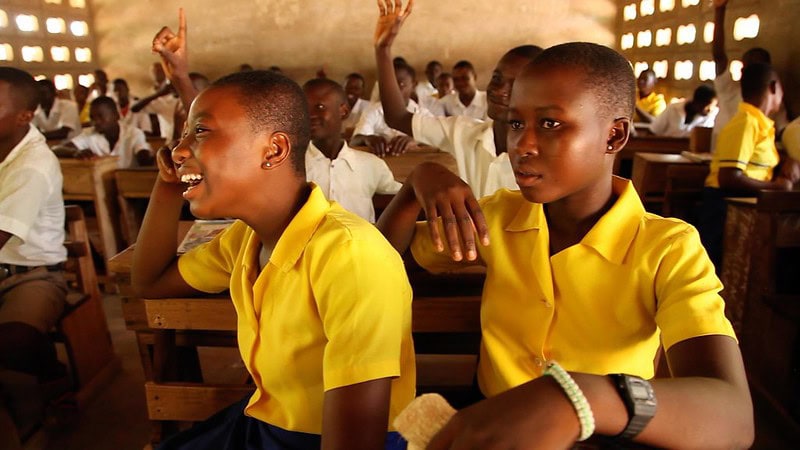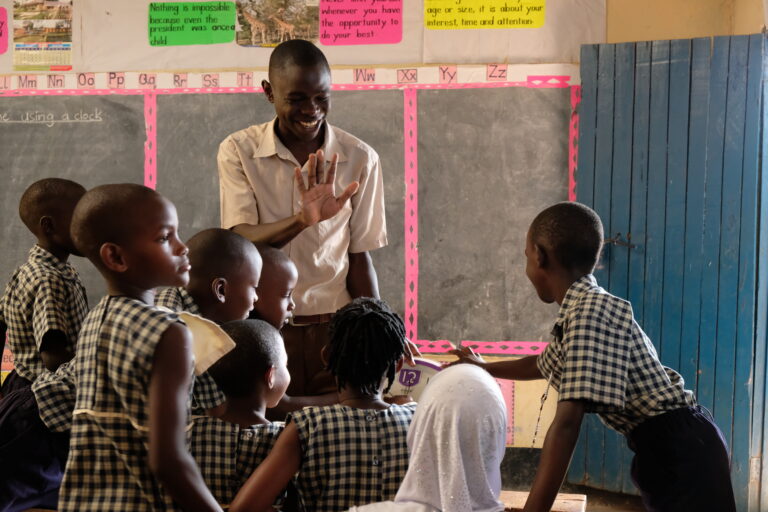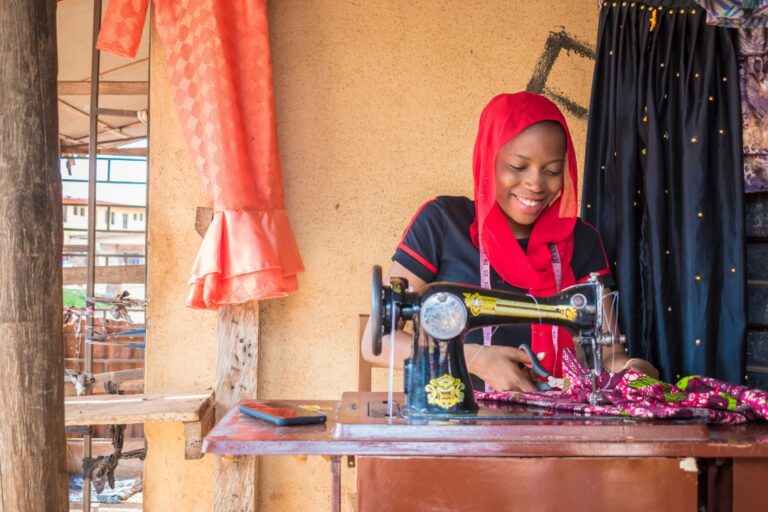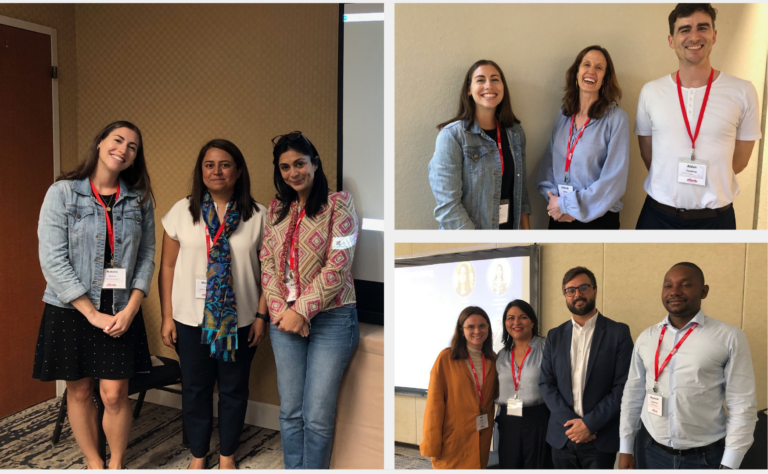What makes effective public-private partnerships in education? Reflections from Rising Academies

Public-Private Partnerships (PPPs) in education have gained significant attention due to their potential to improve access to education through collaboration between government and non-state entities. However, the success of PPPs in education is contingent on various factors, as highlighted in a recent evidence brief by the Education Finance Network, Public-Private Partnerships in Education: Conditions for Success.
Rising Academy Network, an Education Finance Network member, provides education through government partnerships in Sierra Leone, Liberia, Ghana, and Rwanda. During an interview with the Education Finance Network, Stephanie Dobrowolski, Co-Founder and Managing Director of Rising Academies, shared her reflections on the conditions identified in the evidence brief.
The first condition of success relates to the impact of different PPP models. PPPs in education can come in different models, including contract schools, subsidized schools, and voucher schemes. Research indicates that per-student subsidies are the most effective model of PPPs for improving both access and learning outcomes. While Rising Academies’ experience in PPPs is limited to contract schools, Stephanie reflected on this condition’s focus on outcomes as it applies to her experience.
“The emphasis on outcomes and the integration of outcomes funding in the Sierra Leone program, which is funded by The Education Outcomes Fund, has been a great learning opportunity for us. This is the first time that Rising Academies have worked in a program that explicitly ties payment to student learning outcomes, and we have learned valuable lessons around the importance of determining expected levels of progress, establishing robust measurement frameworks, and addressing data gaps. This experience has also underscored the significance of effective evaluation mechanisms and robust contracting practices, as well as the need for flexibility and adaptability.
“Furthermore, the partnership with an impact investor such as Bridges Fund Management Ltd. has brought valuable expertise in outcomes-funded programs to the table. The evaluation process and contracting requirements become more intricate in such partnerships, and the guidance and support from experienced partners have proven invaluable.”
The second condition for success highlighted in the evidence brief is that PPPs have the greatest impact when they are strategically located in hard-to-reach or underserved areas, or areas with a high number of out-of-school children.
Rising Academies is an implementing partner of a $30 million program in Ghana, which launched this year. Funded by the UKs Foreign, Commonwealth and Development Office and designed by Education Outcomes Fund, the program aims to get 70,000 out-of-school children back into the classroom and improve learning outcomes for 98,000 children across 600 primary schools over the next four years.
The program specifically targets areas with a high number of out-of-school children, aiming to offer an alternative learning program to 18,000 out-of-school children, with a view to transition them into mainstream schools whilst providing support for their retention.
“What is exciting about this,” said Stephanie, “is that it has enabled us for the first time to partner very intentionally with an organization – the Ghanaian NGO School for Life – that has vast experience of meeting the needs of children out of school. They are delivering the out-of-school children component to the program in Northern Ghana, and we then partner with them on the in-school component in their geography.”
The third finding of the evidence brief is that successful PPPs require high quality school management, internal accountability, and autonomy to adapt as necessary.
Stephanie noted that it’s necessary to ensure there’s a balance of autonomy and accountability. “One of the challenges and areas of learning in the Education Outcomes Fund program has been around ensuring accountability and generating learning through reporting and ongoing information from your providers, whilst at the same time giving them enough space to get on with the work and focus the internal capacity on implementing the program really well. This theme is very important, because from an outcomes-funding perspective, the idea is to focus on the outcomes and give implementers the space to innovate and adapt towards achieving those outcomes. If there are rigid accountability requirements in place, it can be challenging to navigate those alongside the focus on outcomes.”
The fourth condition for PPP success, according to the brief, is the capacity of the government to oversee, monitor, and enforce established policies and regulations.
Stephanie observed that given that governments often explicitly use PPPs when their own systems lack the necessary capacity to achieve the desired changes, it is common for PPPs to inherently suffer from limited government oversight and monitoring capacity.
“In all PPPs, it’s critically important to ensure that it is the government that is driving the decision making”, she said. “The approach to oversight should be tailored to the government’s capacity. For instance, in the case of the recent program in Sierra Leone, the government took the lead in setting high-level priorities, while partnering with entities such as the Education Outcomes Fund, funders, and evaluators to provide valuable support in overseeing and managing the program.
“In the Elimu Soko program in Rwanda, which is funded by Hempel Foundation, there are more robust government systems in place. What sets this program apart is that it’s intentional about the goal of achieving national scale within the government’s budget. Because of this goal, the way through which we are implementing the program is much more with and through existing government systems. In contrast to our other PPP contracts, where the intensity of our support is higher, in the Elimu Soko program we have a smaller team who work very closely with the local government officials. We train the teachers and school leaders ourselves, but the implementation, the ongoing engagement with schools, and the review of data and feedback to schools all happens in the weekly data review sessions with government. When it’s clear that the program is a starting point to a national scale, we must also ensure that the ways in which we are working lend themselves to that scale up.”
The work by Rising Academies and their government and non-state partners are promising to improve learning outcomes for hundreds of thousands of disadvantaged children over the coming years. By leveraging the strengths and resources of both the public and private sectors, PPPs can address critical gaps in educational access and quality and can play a vital role in equipping children with the knowledge and skills they need to thrive. To learn more about PPPs in education, read the Education Finance Network’s evidence brief, Public-Private Partnerships in Education: Conditions for Success.
Rising Academies, Education Outcomes Fund, the UK’s Foreign, Commonwealth & Development Office (FCDO), and Hempel Foundation are all members of the Education Finance Network.





